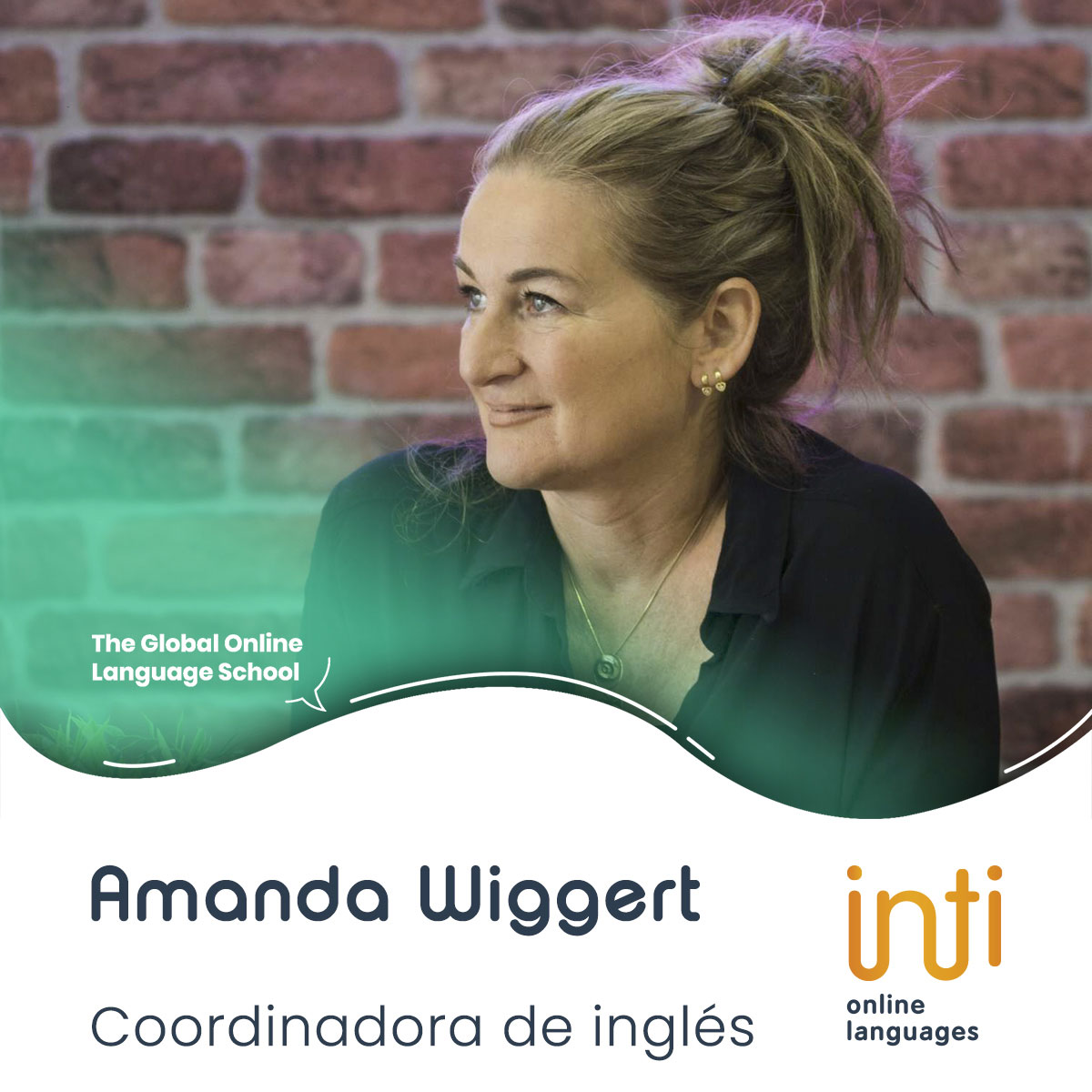
How did you get into English teaching?
During my Erasmus year from Edinburgh University to Salamanca I met my future husband and wanted to find a job that would take me back to Spain, which I had also fallen for. I did a one-month TEFL course in Hastings and landed here. As well as being a teacher for individual students, companies and universities, I’ve run a TEFL training centre in Barcelona and onsite language schools for English and Spanish. And now I’m a founder of INTI Online Languages, taking care of the English department.
What makes a great teacher?
A combination of diligence, rigour and personality.
– Diligence because a really well-prepared lesson makes all the difference. This means careful detection and record of students’ weak spots and the incorporation of activities to nail these issues. Also, a great teacher will think hard about sequencing, flow, and potential student questions which might blow the lesson ship off course. They’ll have a general and a specific plan of objectives so the point of the lesson doesn’t get lost in the wash.
– Rigour because good teachers work hard on the points they’re teaching, conscientiously ensuring that the knowledge is being logged successfully using frequent checks. A progression graph of my own method resembles a forward-moving snail in that it loops back over itself all the time!
– The personality of an instructor, while not the most important thing about them, does affect students’ enthusiasm for spending time in their company, especially online. When I interview a future teacher, I ask myself, does this person have a cheery and energetic demeanor? Are they clever and interested in other people and places? Are they responsible and accountable?
What’s your best tip for anyone trying to learn a language?
Be your own conversation partner by training yourself to think in the target language. So, when you’re walking along the street, in bed or in the bath, while you’re cooking, on a bike…. translate your thoughts and chat away to yourself. See which words or phrases you get stuck on. Google them, write them down, and commit them to memory.
And what are common pitfalls?
Beginners and low intermediate students often don’t get the practice they need as they tend to “overthink” sentence construction. Sure, correct speech is important but very slow speech is tedious for the person you are talking to and it means you speak less. Better to have a bash at speeding up and then listen carefully to your teacher’s corrections, and have another try.
By contrast, higher level learners often have ingrained errors that they don’t work on correcting as they value speed over accuracy, wrongly imagining that this makes them sound more fluent. This is, at best, a pity as it mars a good impression and, at worst, a disaster as verbal errors and a strong accent can make speech incomprehensible. Listen to your teacher’s corrections of your mistakes and try hard to iron them out!
What’s the best thing about this job?
Watching students achieving life goals because of the language they’ve learnt. As a result of their language study, they are often set off on a new path to an exciting job or study opportunity. I often compare learning a new language to climbing a mountain- it can be an upward slog, but oh, the view when you get to the top!

